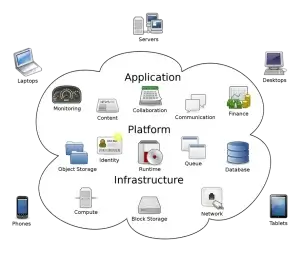With 2025 already here, the human resources landscape in the UAE is changing rapidly. HR professionals are not only adapting to the changing expectations of the workforce; they are also trying to respond to ever-deepening regulatory compliance expectations. Recently, the UAE Ministry of Human Resources reported that more than 60% of organizations already view talent retention and legal compliance as their number one and two priorities. These challenges clearly demand transformational responses, not simply new tools, and digital transformation is that response.
Human Resource Management Systems (HRMS) aim to help with operationalizing many of the challenges and complexities of the new workforce by providing HR leaders with actionable analysis of workforce data, and, most importantly, automating many tasks to facilitate faster and clearer hiring.
1. Addressing Talent Shortages and Retention
Attracting and retaining qualified talent is one of the largest HR challenges in the UAE in 2025. As job markets become more crowdsourced and more and more job seekers want to specialize, retaining top performers becomes urgent and complex.
- HRMS for talent retention in the UAE can provide predictive analytics for successful retention by identifying at-risk employees and making recommendations for actionable engagement.
- HRMS assists employee engagement with engagement platforms in Dubai, engaging employees and promoting workplace-friendly satisfaction with the use of engagement tools, ‘pulse surveys’, feedback loops, engagement tools, and recognition.
2. Ensuring Emiratization Compliance
The UAE government’s emphasis on Emiratization is changing hiring processes across all sectors. Noncompliance = penalties = a major issue for HR people.
- There’s Emiratization compliance software to automate and track Emirati hires, plus document and report on them.
- The dashboards (for HR compliance software in UAE) give real-time visibility into your compliance metrics to take action.
3. Adapting to Remote and Hybrid Work Models
The post-COVID world made remote and hybrid work models the norm. HR departments now have to coordinate distributed teams, ensure productivity, and maintain culture.
- HRMS solutions showing how to manage a remote workforce in the UAE include time-tracking, attendance management, and communication tools for off-site employees.
- HRMS solutions for the hybrid workforce UAE include scheduling/space planning and workflow optimization.
4. Modernizing Recruitment Processes
Recruitment today is not just about putting out job postings. It’s about targeting candidates, speeding up time-to-hire, and hiring the right cultural fit.
- AI recruitment tools in the UAE can simplify the applicant screening process by automatically parsing resumes and scoring candidates.
- Links to social media and job boards can expand your reach while maintaining brand consistency via HR software UAE.
5. Managing Performance and Development
Ongoing performance reviews and development planning are now a necessity. Standard annual employee reviews are replaced with real-time performance metrics.
- The HRMS for performance management in the UAE offers goal setting, 360-degree feedback, and data-driven performance reviews.
- The LMS part of the HRMS is tied to performance management for skills training, goal identification, and personal and career development of your employees.
6. Streamlining Onboarding and Offboarding
A smooth onboarding experience has a direct effect on employee experience, happiness, and tenure, as well as hiring and recruitment practices. Similarly, offboarding should not be taken lightly as it impacts compliance and the security of data.
- The HRMS for onboarding automation UAE will allow you to customize and automate onboarding workflows, provide employees with a view of their onboarding journey, ensure all documentation is completed, and their training modules related to onboarding are scheduled.
- The HRMS for exit automation can provide you with workflows to transfer knowledge for maintaining learning continuity and ensure the proper clearance process is followed.
7. Boosting Employee Wellness
Employee well-being is no longer optional, it is a key partnership within the workforce. Stress, burnout, and mental health are real problems that impact productivity and morale.
- The HRMS for employee wellness UAE will provide organizations with insights to track wellness metrics with respect to employee engagement to identify quantifiable correlations. It can also integrate employee assistance programs, gym memberships, and mental health programs.
- HR will also be provided with well-being dashboards to support benchmarking and planning of preventative wellness initiatives.
8. Handling Complex Payroll and Compliance Requirements
With a uniquely complex regulatory environment and diverse remuneration structures, payroll and compliance can be especially difficult in the UAE.
- HRMS with payroll integration in the UAE allows for timely and accurate payroll processing while ensuring compliance with multi-currency, tax, and benefit laws and guidelines.
- HRMS enables compliance tracking in the UAE to alert users to regulatory changes and ensure continued legal compliance.
9. Empowering Employees with Self-Service Tools
Today’s employees expect transparency and control over their HR-related interactions, whether it’s applying to take sick leave or simply accessing their salary slips.
- HRMS can give employees self-service tools in the UAE, which allow them to update their information, request leave, and download documents without having to involve HR.
- This ultimately saves time and empowers employees further!
10. Leveraging Data for Strategic Decision-Making
Sometimes people refer to data as the new oil, and whilst unsurprisingly this is an unreasonable comparison, data certainly has become an important facet of HR strategy. Without the use of data, any decisions made relative to the workforce will be largely based on consequences.
- HR analytics software in the UAE and HRMS for workforce analytics in the UAE allow the conversion of data into insights, tracking trends in turnover, productivity, and engagement.
- In addition to workforce data, HRMS provides greater opportunity for data-laden decisions, as opposed to gut feel and speculation about the employee lifecycle.
Looking Ahead: HR Digital Transformation in the UAE
Embracing digital innovation is at the heart of building HR excellence in 2025. HR digital transformation in the UAE is not simply a question of deploying new software, but rather evolving how HR will operate, engage, and deliver value.
HRMS solutions in Dubai can offer unique modules tailor-made to meet the regulatory and cultural needs of businesses in the region. For start-ups, mid-size companies, and enterprises alike, investing in a viable and forward-thinking HRMS platform is more than an option; it is now a fundamental piece of business strategy.
Final Thought: What’s Slowing Your HR Strategy?
Which HR challenge is slowing your organization down—compliance hurdles, talent retention, or employee engagement?
Now is the time to act. Begin by identifying your organization’s biggest pain points. Then, explore a demo of leading HRMS solutions in Dubai to see how modern tools can drive your transformation.
Empower your HR team today for a more agile, compliant, and people-first 2025.



